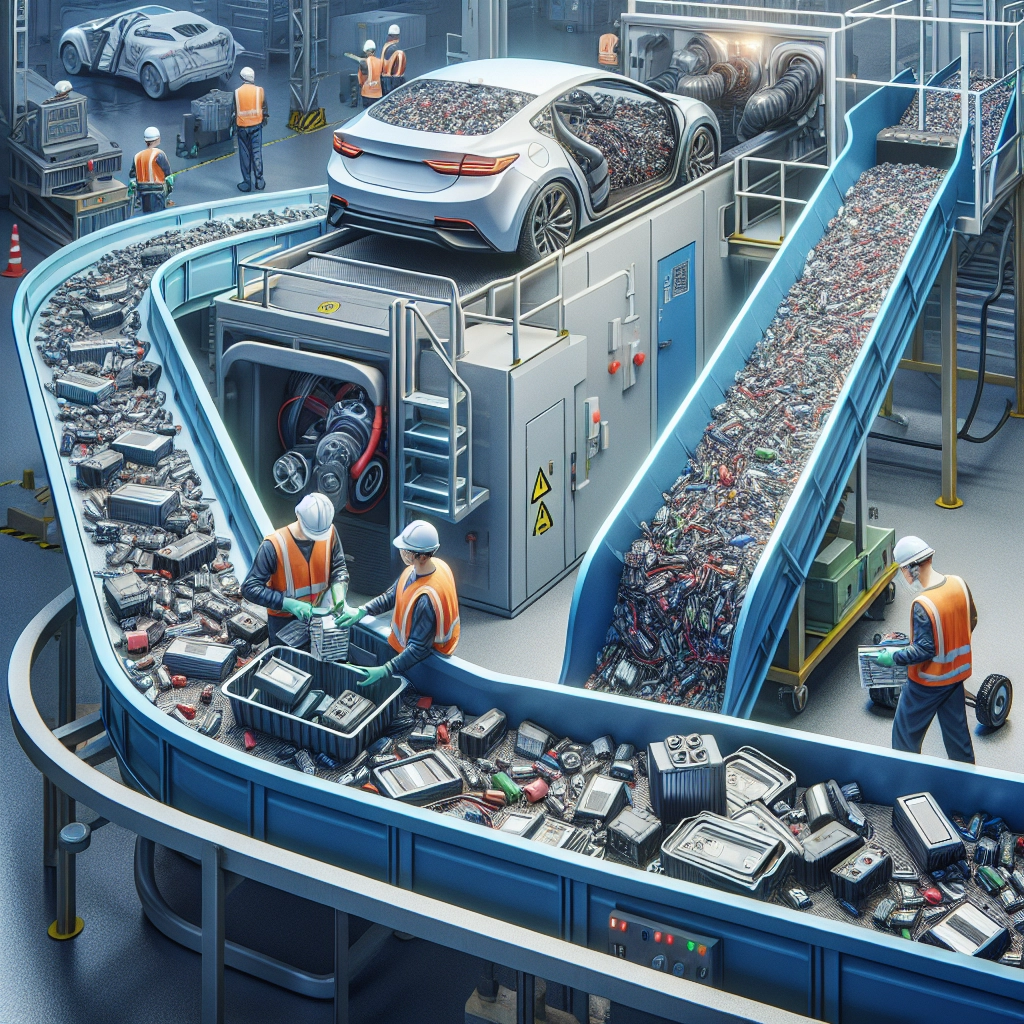
- Published on
- Authors

- Name
- ric de yuga 😄
🔋 The Rise of Electric Vehicles and Lithium-Ion Batteries
Electric vehicles (EVs) have emerged as a promising solution to reduce greenhouse gas emissions and combat climate change. Central to the success of EVs are lithium-ion batteries, which power these eco-friendly vehicles. However, as the adoption of EVs grows, concerns have been raised about the environmental impact of disposing of these batteries. In this blog post, well explore the clean methods of lithium-ion battery disposal and recycling, and compare the environmental impact of battery disposal to the emissions of traditional vehicles.
♻️ Clean Disposal and Recycling of Lithium-Ion Batteries
Lithium-ion batteries, while crucial for the operation of EVs, contain valuable materials that can be recovered and reused. Proper disposal and recycling of these batteries are essential to minimize their environmental impact. Here are some clean methods for disposing and recycling lithium-ion batteries:
- Battery Collection Programs: Many EV manufacturers and battery retailers have established collection programs where consumers can drop off their used lithium-ion batteries for proper disposal and recycling.
- Recycling Facilities: Specialized recycling facilities have emerged to handle the growing volume of lithium-ion batteries. These facilities use advanced technologies to safely dismantle the batteries and recover valuable materials such as lithium, cobalt, and nickel.
- Repurposing Batteries: Before recycling, some lithium-ion batteries can be repurposed for second-life applications. For example, batteries that no longer meet the performance requirements for EVs can still be used for stationary energy storage in homes or businesses.
By implementing these clean disposal and recycling methods, we can ensure that the environmental impact of lithium-ion batteries is minimized and that valuable materials are recovered for reuse in new batteries or other applications.
🍃 Comparing Battery Disposal to Vehicle Emissions
While the disposal of lithium-ion batteries is a valid concern, it's important to put it into perspective when compared to the emissions generated by traditional vehicles. Here's how EVs powered by lithium-ion batteries stack up against their gasoline-powered counterparts:
- Reduced Greenhouse Gas Emissions: EVs produce zero tailpipe emissions, significantly reducing greenhouse gas emissions compared to traditional vehicles. Even when considering the emissions associated with electricity generation, EVs still have a lower overall carbon footprint.
- Cleaner Air Quality: By eliminating tailpipe emissions, EVs contribute to improved air quality in urban areas, reducing the negative health impacts associated with air pollution.
- Lifecycle Assessment: When evaluating the environmental impact of EVs, it's important to consider the entire lifecycle, from manufacturing to disposal. Studies have shown that even with battery disposal taken into account, EVs have a lower environmental impact compared to traditional vehicles over their lifetime.
As battery recycling technologies and facilities continue to advance, the environmental impact of battery disposal will further diminish, making EVs an even cleaner transportation option.
🏭 Advancements in Battery Recycling Facilities
To address the growing need for lithium-ion battery recycling, significant advancements are being made in recycling facilities and technologies:
- Increased Recycling Capacity: Recycling facilities are expanding their capacity to handle the increasing volume of lithium-ion batteries from EVs. This expansion ensures that batteries can be properly disposed of and recycled as EV adoption grows.
- Innovative Recycling Technologies: New recycling technologies are being developed to improve the efficiency and cost-effectiveness of lithium-ion battery recycling. These technologies aim to recover a higher percentage of valuable materials while minimizing waste and environmental impact.
- Closed-Loop Recycling: Some EV manufacturers are investing in closed-loop recycling systems, where recovered materials from used batteries are directly used in the production of new batteries. This approach reduces the need for virgin materials and promotes a circular economy.
As battery recycling facilities continue to advance and expand, the concerns surrounding the disposal of lithium-ion batteries from EVs will be mitigated, ensuring a sustainable future for electric transportation.
🌍 Driving Towards a Cleaner Future
The rise of electric vehicles powered by lithium-ion batteries represents a significant step towards a cleaner and more sustainable transportation future. While the disposal of these batteries is a valid concern, the clean methods of recycling and the advancements in recycling facilities demonstrate that this issue can be effectively addressed.
When compared to the emissions generated by traditional vehicles, the environmental benefits of EVs are clear. By embracing electric transportation and supporting the development of robust battery recycling infrastructure, we can significantly reduce greenhouse gas emissions, improve air quality, and create a more sustainable future for generations to come.
As consumers, we have the power to drive change by choosing electric vehicles and properly disposing of lithium-ion batteries through established collection programs and recycling facilities. Together, we can pave the way for a cleaner, greener transportation landscape.
